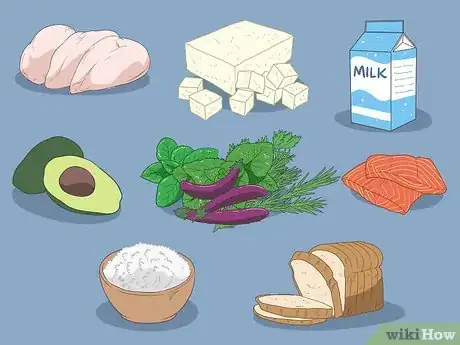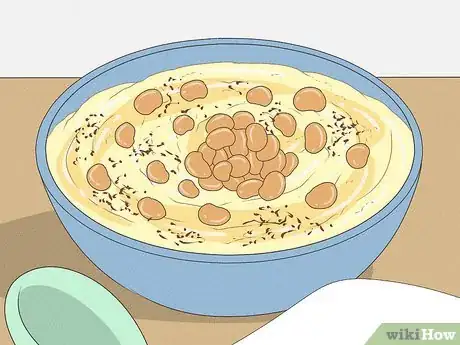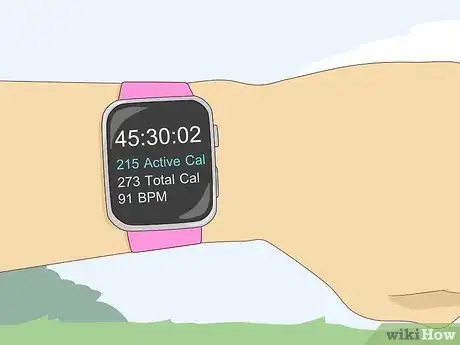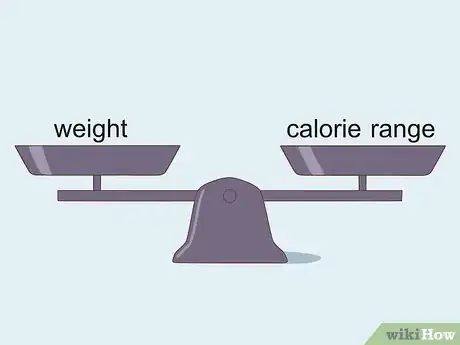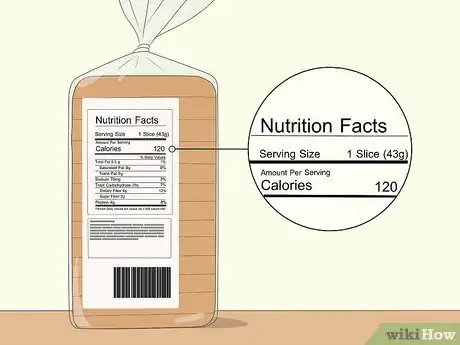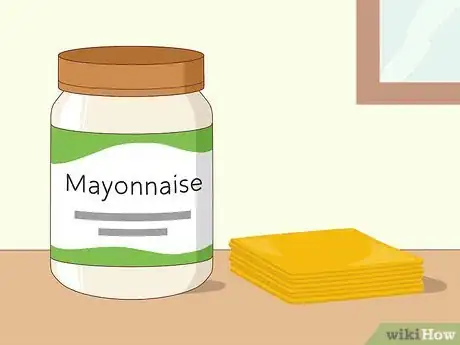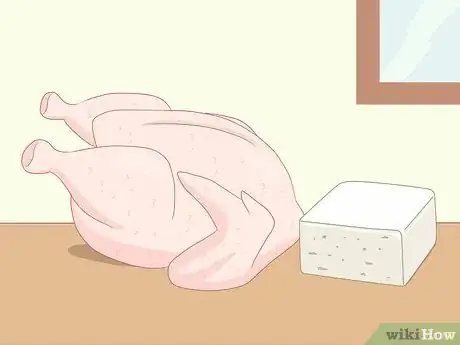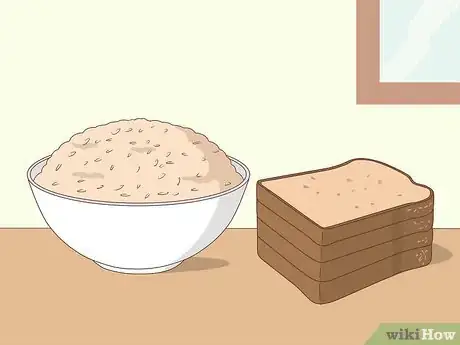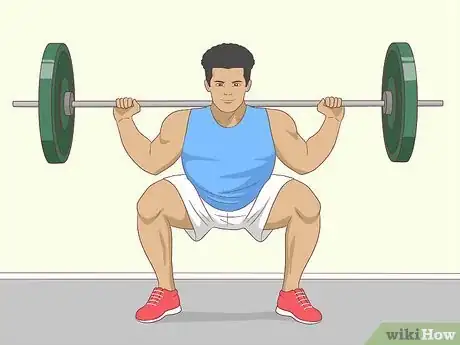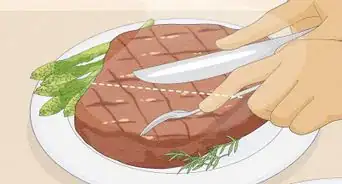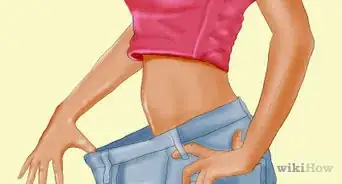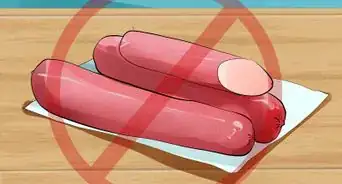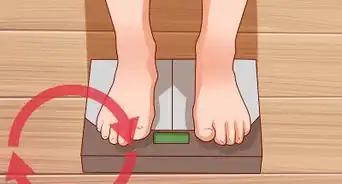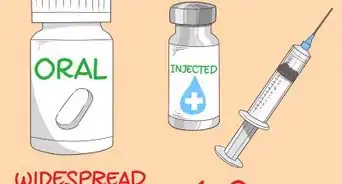This article was co-authored by Amy Chow and by wikiHow staff writer, Jennifer Mueller, JD. Amy Chow is a Registered Dietitian and the Founder of Chow Down Nutrition, a family and child nutrition consulting service in British Columbia (BC), Canada. With over nine years of experience, Amy has a special interest in pediatric nutrition, food allergy management, and eating disorder recovery. Amy holds a Bachelor’s degree in Nutritional Sciences from McGill University. She gained her clinical experiences at residential and outpatient eating disorder treatment programs as well as for BC Children’s Hospital before starting her own business. She has been featured on Find BC Dietitians, Dietitians of Canada, Food Allergy Canada, Recovery Care Collective, Parentology, Save on Foods, National Eating Disorder Information Centre (NEDIC), and Joytv.
There are 10 references cited in this article, which can be found at the bottom of the page.
This article has been viewed 8,365 times.
Eating healthy isn't necessarily about dieting—it's about giving your body the nutrition and energy it needs to function properly. Ultimately, whether you gain or lose weight comes down to the number of calories you consume. If you want to eat healthy without losing weight, just make sure you're eating at least as many calories as you burn each day. Here, we've compiled answers to all your most common questions about how to eat healthy and not lose weight.[1]
Steps
Expert Q&A
Did you know you can get expert answers for this article?
Unlock expert answers by supporting wikiHow
-
QuestionHow do I eat more if I don't feel hungry?
 Amy ChowAmy Chow is a Registered Dietitian and the Founder of Chow Down Nutrition, a family and child nutrition consulting service in British Columbia (BC), Canada. With over nine years of experience, Amy has a special interest in pediatric nutrition, food allergy management, and eating disorder recovery. Amy holds a Bachelor’s degree in Nutritional Sciences from McGill University. She gained her clinical experiences at residential and outpatient eating disorder treatment programs as well as for BC Children’s Hospital before starting her own business. She has been featured on Find BC Dietitians, Dietitians of Canada, Food Allergy Canada, Recovery Care Collective, Parentology, Save on Foods, National Eating Disorder Information Centre (NEDIC), and Joytv.
Amy ChowAmy Chow is a Registered Dietitian and the Founder of Chow Down Nutrition, a family and child nutrition consulting service in British Columbia (BC), Canada. With over nine years of experience, Amy has a special interest in pediatric nutrition, food allergy management, and eating disorder recovery. Amy holds a Bachelor’s degree in Nutritional Sciences from McGill University. She gained her clinical experiences at residential and outpatient eating disorder treatment programs as well as for BC Children’s Hospital before starting her own business. She has been featured on Find BC Dietitians, Dietitians of Canada, Food Allergy Canada, Recovery Care Collective, Parentology, Save on Foods, National Eating Disorder Information Centre (NEDIC), and Joytv.
Registered Dietitian
References
- ↑ https://www.heart.org/en/healthy-living/healthy-eating/eat-smart/nutrition-basics/how-to-eat-healthy-without-dieting
- ↑ https://www.upmcmyhealthmatters.com/healthy-eating-without-dieting/
- ↑ https://www.mayoclinic.org/healthy-lifestyle/nutrition-and-healthy-eating/expert-answers/underweight/faq-20058429
- ↑ https://www.upmcmyhealthmatters.com/healthy-eating-without-dieting/
- ↑ JoAnn Solomon. Master Beauty Consultant & Celebrity Makeup Artist. Expert Interview. 22 October 2020.
- ↑ https://www.health.harvard.edu/staying-healthy/calorie-counting-made-easy
- ↑ https://my.clevelandclinic.org/health/treatments/17633-weight-management-tips
- ↑ https://my.clevelandclinic.org/health/articles/16555-snack-ideas-for-weight-gain
- ↑ https://my.clevelandclinic.org/health/articles/16555-snack-ideas-for-weight-gain
- ↑ https://familydoctor.org/healthy-ways-to-gain-weight-if-youre-underweight/
- ↑ https://familydoctor.org/healthy-ways-to-gain-weight-if-youre-underweight/
- ↑ https://www.hopkinsmedicine.org/health/wellness-and-prevention/maintaining-weight-loss
- ↑ https://familydoctor.org/healthy-ways-to-gain-weight-if-youre-underweight/
- ↑ https://www.nia.nih.gov/health/maintaining-healthy-weight
- ↑ https://my.clevelandclinic.org/health/treatments/17633-weight-management-tips
- ↑ https://www.nia.nih.gov/health/maintaining-healthy-weight
